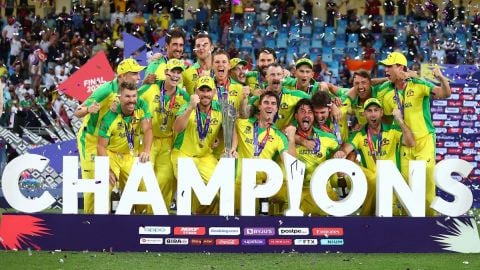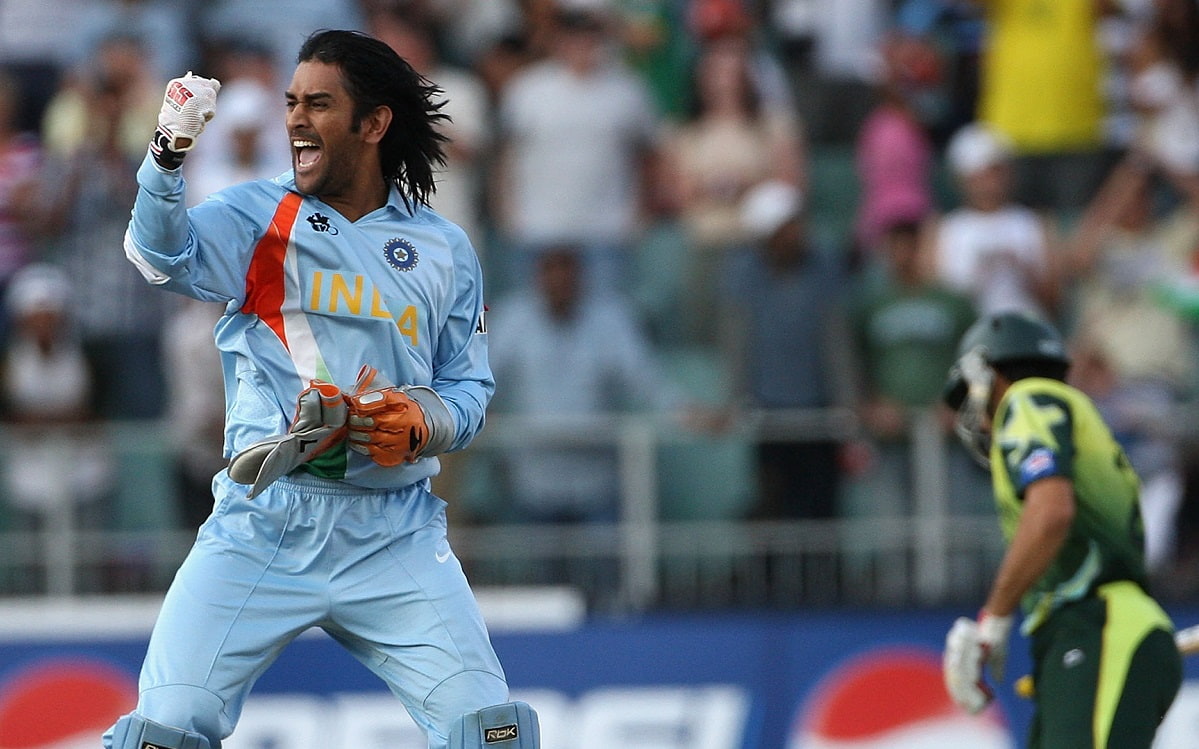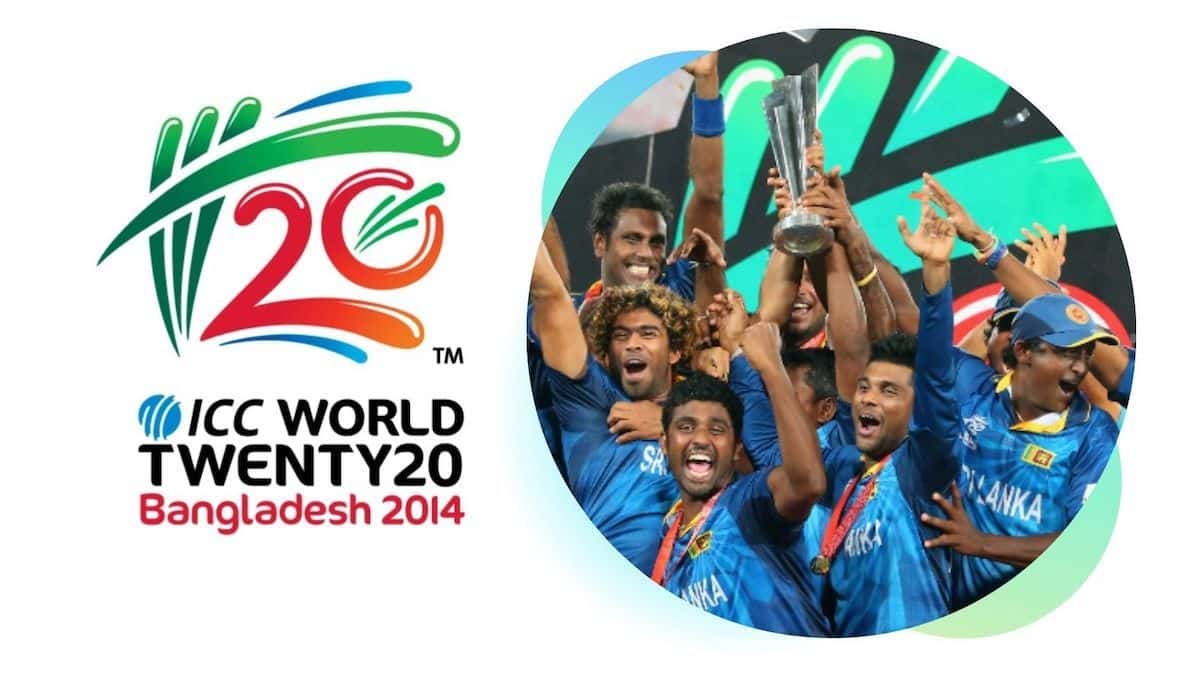
T20 World Cup History (Image Source: Google)
T20 World Cup Flashback - A Look At The Previous Editions
2007 – India become inaugural winners after final over heroics against Pakistan
The first ICC Men’s T20 World Cup may have only lasted 13 days but there was no shortage of unforgettable moments. The opening fixture set the tone, Chris Gayle smashing 10 sixes at the Wanderers to become the first player to make an official T20I hundred. But that still was not enough for victory, with the Herschelle Gibbs-inspired hosts chasing down 205 with 14 balls to spare.


 Spurred on by the disappointment of missing out on home soil, Sri Lanka went one better in Bangladesh two years later.
Spurred on by the disappointment of missing out on home soil, Sri Lanka went one better in Bangladesh two years later.